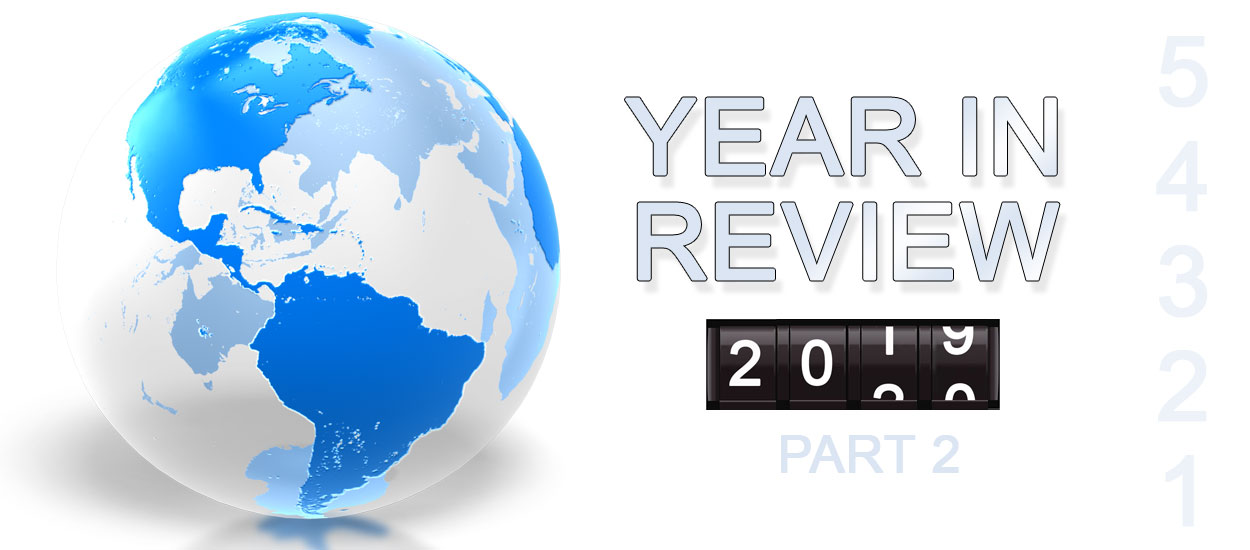While 2019 didn’t have any groundbreaking stories in North America like last year when the Supreme Court repealed PASPA, opening up the floodgates for sports betting, there were still many stories in North America and the rest of the world that were noteworthy, a few of them related to that big decision by SCOTUS. With that in mind, here are the top 5 gambling stories in North America the last year. Check out 6 through 10 for the rest of the Top 10 list.
5. The implication on sports betting from the NFC championship game
Generally, I don't look at sports when it comes to the top gambling stories of the year but this one was different because it had a significant impact on both the game and sports betting.
Prior to 2000 referees in the NFL were coming under a lot of pressure due to some questionable calls, so the league introduced the challenge flag that allowed coaches to challenge plays they deemed were called wrong. Under the rules coaches can only challenge certain plays, such as whether a pass is complete, whether a quarterback's arm was going forward before a fumble, whether a player reached the first down marker, whether a player touched the ball on a kick, whether the right number of players were on the field and a few others. Turnovers and scoring plays are automatically reviewed. Referees were apparently ok with the new rule since none of the plays open to challenge were judgement calls and in the end it was up to the referees to make the final decision after "going under the hood." But under no circumstances were penalties a part of the equation.
That changed after last season's NFC Championship game. 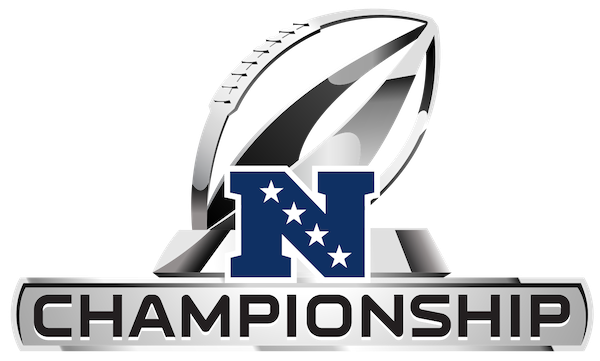 On January 20th, 2019 the New Orleans Saints hosted the Los Angeles Rams for the chance to go to the Super Bowl. With the score tied 20-20 and 1:48 left in the 4th quarter Drew Brees passed the ball to Tommylee Lewis near the sidelines. Lewis was set to make the catch, and if he did so, it's most likely the Saints would have run down the clock and kicked a game winning field goal. But long before Lewis could make the catch Nickell Robey-Coleman bumped and tackled Lewis, an obvious pass interference penalty. Almost every single person watching the game agreed that was pass interference but the refs did not call the penalty. The Saints instead kicked a field goal with 1:45 remaining. The Rams then marched down the field to kick a game tying field goal and then won the game in overtime with another field goal.
On January 20th, 2019 the New Orleans Saints hosted the Los Angeles Rams for the chance to go to the Super Bowl. With the score tied 20-20 and 1:48 left in the 4th quarter Drew Brees passed the ball to Tommylee Lewis near the sidelines. Lewis was set to make the catch, and if he did so, it's most likely the Saints would have run down the clock and kicked a game winning field goal. But long before Lewis could make the catch Nickell Robey-Coleman bumped and tackled Lewis, an obvious pass interference penalty. Almost every single person watching the game agreed that was pass interference but the refs did not call the penalty. The Saints instead kicked a field goal with 1:45 remaining. The Rams then marched down the field to kick a game tying field goal and then won the game in overtime with another field goal.
The outrage over the missed call led to Pointsbet, a legal New Jersey sportsbook, to announce that it would refund all losing money line and spread bets made on the Saints. Several offshore sportsbooks followed suit and it also it led to many analysts asking about the integrity of the games given that referee Bill Vinovich had a record of being biased against the Saints. In fact, his history of bad calls against the Saints was so evident that it led to an online petition by many Saints fans asking for his removal as referee prior to that game. It also led to some state officials asking how any league can ask for an integrity fee on sports betting when the league itself won't do anything to ensure integrity in its games.
Almost exclusively due to that non-call the NFL created a new rule for the 2020 season that allowed coaches to challenge offensive or defensive pass interference calls in the first 28 minutes of each half. The last 2 minutes would still be a booth review. One change to the rule is that the senior VP of officiating Al Riveron and his team make the decision remotely in New York whether to overturn a pass interference challenge rather than having a referee go under the hood. And Riverson made it clear that it had to be clear and unrefutable evidence that the call was wrong. Apparently, this was agreed to because referees were furious that their judgement calls were being challenged, so this was a way to appease the refs as well as the teams. Unfortunately, the new rule did not seem to change much since only 3% of calls this season have been overturned including blatant calls or non-calls that would have decided games. On social media many bettors have been chastising the referees and to the frustration of sportsbooks, both legal U.S. companies and those located offshore, a large group of bettors have demanded that sportsbooks refund bets on games decided by controversial calls or non-calls and used Pointsbet as the reason this should be offered.
The new rule is frustrating to both the league and sportsbooks who have no idea how to handle a judgement call that has a major impact on the game. In the past the sportsbooks would have simply said that the final result stands as the score dictates and they have no control over the decision of officials. But now the sportsbooks are being forced to consider payouts for games just to keep bettors happy and playing with them. Not surprisingly I have been told that a lot of the new legal sportsbooks in the United States are upset at Pointsbet for setting that precedent.
4. New Jersey passes Nevada in sports betting handle and the resurgence of betting in Atlantic City
When SCOTUS repealed PASPA, New Jersey was making bold predictions on the amount of money it hoped to raise from sports betting. Some state officials were talking about billions in profits. The prediction seemed ridiculous given the struggles the state was having in attracting betting for online poker, (not to mention the fact that other states would be offering sports betting as well, thus eventually eliminating the head start New Jersey had, which led northeast bettors not located in the state to visit New Jersey to bet on sports online), and while the doom and gloom scenarios may eventually prove true, one can't argue with the early success. 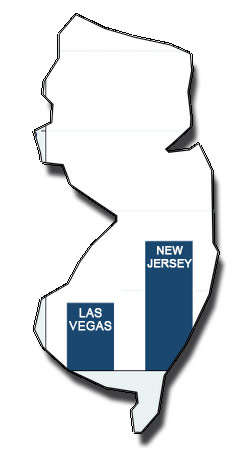 From July 2018 to August 2019 over $4 billion was bet on sports in New Jersey and in May of 2019 New Jersey surpassed Nevada in sports betting handle. That announcement not only signified that New Jersey indeed stood to make a lot in sports betting, but also that Nevada could lose a lot of its action from visitors who choose to stay home to wager on sports.
From July 2018 to August 2019 over $4 billion was bet on sports in New Jersey and in May of 2019 New Jersey surpassed Nevada in sports betting handle. That announcement not only signified that New Jersey indeed stood to make a lot in sports betting, but also that Nevada could lose a lot of its action from visitors who choose to stay home to wager on sports.
Most Nevada casinos shrugged off those concerns though, at least in public, and noted that the revenues in Nevada from 2017 until the first half of 2019 were fairly consistent, so they believe the large increases can be attributed to New Jersey residents choosing to bet at home legally, rather than offshore or with illegal bookmakers. In fact, Nevada had its highest handle ever in March 2019 as visitors went to Nevada in droves to bet on March Madness. But it’s not certain if that was because the tournament was simply more appealing in 2019 or more likely because the repeal of PASPA and discussion of sports betting whetted the appetites of sports bettors in general. No doubt Nevada casinos are keeping a close watch at other state sports betting to see if they are looking forward to lean times in the future.
One thing that can’t be argued, however, is that since the repeal of PASPA, Atlantic City has seen a resurgence. Around six years ago some were wondering if the city was going to become irrelevant in the gambling world as casinos shut down left and right and betting, which topped $6 billion in 2006, dipped to below $2 million by 2014. But the change in attitude towards gambling across the United States saw people return to Atlantic City, which even led to the opening of two new casinos – the Ocean Casino, which took over the old Revel property, and the Hard Rock Casino, which took over the Taj Mahal boardwalk property. Betting and hotel stays at both new casinos were exceptionally high although betting and hotel stays at older casinos sagged. Also leading to the increase in revenues was online betting at sites like Borgata, Golden Nugget, Resorts Casino and Caesars Interactive. So, New Jersey has something to be very excited about at least for the time being.
3. The passing of sports betting laws throughout the United States
When the Supreme Court repealed PASPA, four states had already passed sports betting bills that allowed them to introduce sports betting at casinos and/or racetracks.
- Nevada legalized sports betting in the early 1950s.
- Delaware was grandfathered into PASPA allowing the state to run sports betting, and the state passed a bill in 2009 that would have allowed the racetracks to offer single game sports betting. However, the leagues took the state to court and the state Supreme Court ruled that Delaware could only offer parlay cards on NFL games as they had at the time PASPA was passed. But the law was in place, so when SCOTUS repealed PASPA it was effectively just flipping a switch to allow single game sports betting at the state racetracks.
- New York passed a bill to allow sports betting in 2013, although the first casino to take a sports bet didn’t occur until late this year.
- New Jersey, who started the whole campaign to repeal PASPA, saw the governor in 2012 sign a bill to allow sports betting after a referendum of the state showed 2/3 of the population supported sports betting. And in June 2018 another bill was signed Governor Phil Murphy providing clear rules that legalized all forms of sports wagering in the state.
Since then many other states have come on board. In late 2017, Mississippi passed a law to legalize sports betting if SCOTUS repealed PASPA and in 2018 West Virginia, New Mexico, Rhode Island, Pennsylvania and Arkansas all passed bills to allow sports betting.
But the real interest in sports betting occurred in 2019 after 10 states all passed sports betting legislation. These included Iowa, Oregon, Indiana, Illinois, Montana, New Hampshire, North Carolina, Tennessee, Maine and most recently Michigan. Oregon also passed a referendum to allow it, although no legislation has yet been passed. As well Washington DC has a law in place allowing the betting on sports.
Even more interesting, only eight states have not either introduced or passed a bill on sports betting or introduced a motion least examine the possibility of discussing sports betting legislation. These include Utah, where all gambling is illegal, Alaska which has always been very opposed to gambling and doesn’t even have a lottery, Wyoming, Idaho, Nebraska and Wisconsin. Hawaii and Texas are also very unlikely to pass any law, although they have at least investigated it. As well, it is widely accepted that most Wisconsin residents approve sports betting and the state will consider the option once the current Governor, who is strongly opposed to gambling, leaves office.
So, when SCOTUS repealed PASPA it was said the floodgates may open. In 2017 the gates were opened a crack, in 2018 they were ajar and in 2019 they became wide open allowing all states to go through with ease of which 21 have chosen to do.
2. Controversies involving horse racing
One of the sadder stories of 2019, but certainly worthy of note was the tragic deaths of horses at Santa Anita racetrack. During the winter/spring meeting 30 horses died and, after the 21st death, the California Racing Commission closed the track for 23 days while an investigation could be conducted led by the California Horse Racing Board and the Los Angeles Attorney General's office. Those findings weren’t released until earlier this month, but the Stronach group, who owns the track were determined to make changes immediately and seemed to put the majority of the blame for the breakdowns on drugs used on race days. Consequently, they made an announcement that at Santa Anita and Golden State Lasix and therapeutic drugs would be banned on race days, all drugs for 2 year old horses would be banned on race days and that horses that bleed would have to sit out a period before they could run again. They also required full disclosure and transparency in veterinary records, investment in technology to determine pre-existing injuries and they were looking into the use of the whip during by jockeys during races. Despite the efforts 9 more horses died during the spring meet and seven horses died in the fall meet, concluding with the death of Mongolian Groom at the Breeders’ Cup Classic after breaking its leg in the stretch run. 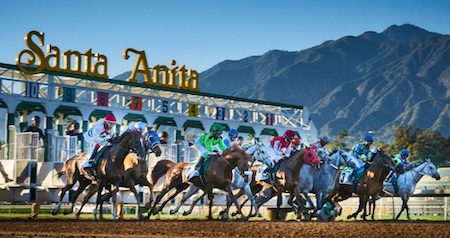 The investigation by the Los Angeles county district attorney’s office concluded in December that there was no real culpability for the deaths during the winter/spring meet at the track, but it did say that sealed tracks were an obvious contributor and thus banned the use of sealed tracks, meaning that races would have to be cancelled on some days when the track was deemed unsafe due to heavy rain. The office also said that it supported the efforts by the California Horse Racing Board and the Stronach Group to put more limitations on medications, improving track conditions and identifying pre-existing injuries that would disqualify those horses from racing until the injury was cleared up. Many horse racing analysts have argued that it’s all window dressing and the biggest issue that no group in California will deal with is the heavy training workload horses have to endure as well as the decision a few years back in California to switch from synthetic surfaces to dirt. When California tracks had synthetic surfaces, catastrophic injuries were way down, but those surfaces are more expensive and most handicappers don’t like it which led to many analysts saying the industry in California was choosing cost over safety.
The investigation by the Los Angeles county district attorney’s office concluded in December that there was no real culpability for the deaths during the winter/spring meet at the track, but it did say that sealed tracks were an obvious contributor and thus banned the use of sealed tracks, meaning that races would have to be cancelled on some days when the track was deemed unsafe due to heavy rain. The office also said that it supported the efforts by the California Horse Racing Board and the Stronach Group to put more limitations on medications, improving track conditions and identifying pre-existing injuries that would disqualify those horses from racing until the injury was cleared up. Many horse racing analysts have argued that it’s all window dressing and the biggest issue that no group in California will deal with is the heavy training workload horses have to endure as well as the decision a few years back in California to switch from synthetic surfaces to dirt. When California tracks had synthetic surfaces, catastrophic injuries were way down, but those surfaces are more expensive and most handicappers don’t like it which led to many analysts saying the industry in California was choosing cost over safety.
As a result of all the negative publicity from these deaths, the industry was hoping that the Triple Crown races would bring interest back to horse racing and turn the focus away from tragedies. It certainly occurred when Justify won the Triple Crown in 2018, but the result of the Kentucky Derby this year only led to more controversy. Racing over a sloppy track the horse racing industry became excited when a Cinderella horse called Maximum Security won the Kentucky Derby beating the field by over 2 lengths in wire to wire fashion. The jockeys on 2 horses, however, lodged a claim of foul for interference and for only the 2nd time in history the winner of the race was disqualified after the stewards ruled that Maximum Security drifted out and impeded the races of War of Will and Long Range Toddy. Consequently, Country House who was among the longest shots on board at 65-1 was awarded the win and Maximum Security was placed 17th. The disqualification was very controversial since Maximum Security didn’t actually bump into other horses, the track surface made it difficult to not drift and under the inquiry rules of other countries including the UK, Maximum Security wouldn’t have been disqualified since he was the best horse in the race. The owners of Maximum Security launched a lawsuit against the disqualification and the industry was dealt a bigger blow when both Maximum Security and Country House were not entered in the other Triple Crown races which led to a huge disinterest and low TV viewership for the Preakness and Belmont Stakes. So, to say 2019 was not a good year for horse racing is an understatement.
1. The DOJ’s new opinion on the Wire Act and the New Hampshire court decision
On November 2nd, 2018, Assistant Attorney General Rod Rosenstein and the DOJ introduced a new opinion that changed the 2011 judgment issued by William Holder and the DOJ at that time. According to the new opinion, the 2011 DOJ was wrong, and the Wire Act indeed applied to all forms of gambling and not just sports betting. The reason this story did not appear in last year's top 10 stories was that it was not until January of 2019 that decision was made public, after a poker site uncovered it.
The wording of the opinion titled "Reconsidering whether the Wire Act Applies to Non-Sports Gambling" was as follows:
This Office concluded in 2011 that the prohibitions of the Wire Act in 18 U.S.C. § 1084(a) are limited to sports gambling. Having been asked to reconsider, we now conclude that the statutory prohibitions are not uniformly limited to gambling on sporting events or contests. Only the second prohibition of the first clause of section 1084(a), which criminalizes transmitting “information assisting in the placing of bets or wagers on any sporting event or contest,” is so limited. The other prohibitions apply to non-sports related betting or wagering that satisfy the other elements of section 1084(a). The 2006 enactment of the Unlawful Internet Gambling Enforcement Act did not alter the scope of section 1084(a). 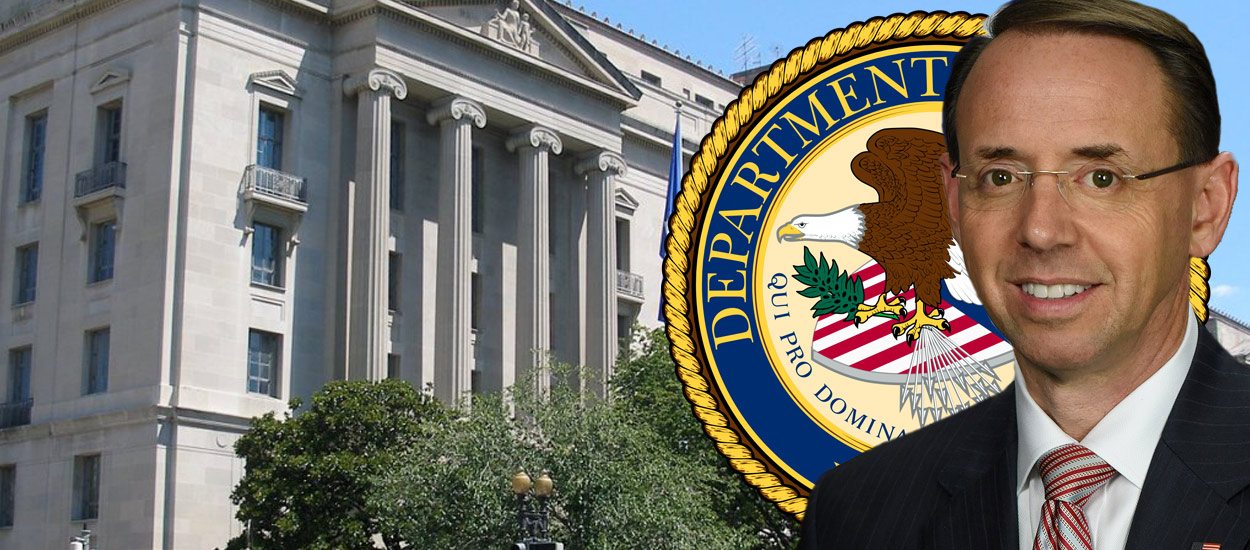 Why Rosenstein did not make this opinion public in November and it had to be discovered through private investigation 2 months later is unknown, although more than likely the DOJ wanted it announced in a manner that wouldn’t have provided time for public discussion or discourse. And remember, that was the same way the Republicans passed the UIGEA in 2006. The standard belief is the law was passed for 3 reasons. First the Republicans wanted to appease Sheldon Adelson, who is the biggest donor to Republican causes and who has made it his mission in his final years to stop online gambling; second because the Republicans want a federal online gambling law passed which would only be feasible if state laws permitting online gambling are declared null and void; and third because Rosenstein was under fire from President Trump for hiring Robert Mueller in the Russian interference investigation and hence he wanted to make himself more valuable in the private sector by being associated with the new opinion.
Why Rosenstein did not make this opinion public in November and it had to be discovered through private investigation 2 months later is unknown, although more than likely the DOJ wanted it announced in a manner that wouldn’t have provided time for public discussion or discourse. And remember, that was the same way the Republicans passed the UIGEA in 2006. The standard belief is the law was passed for 3 reasons. First the Republicans wanted to appease Sheldon Adelson, who is the biggest donor to Republican causes and who has made it his mission in his final years to stop online gambling; second because the Republicans want a federal online gambling law passed which would only be feasible if state laws permitting online gambling are declared null and void; and third because Rosenstein was under fire from President Trump for hiring Robert Mueller in the Russian interference investigation and hence he wanted to make himself more valuable in the private sector by being associated with the new opinion.
Upon the information being uncovered, Rosenstein told law enforcement not to pursue charges against any states for 90 days to give them time to get in line with the new opinion. States seemed lined up to appeal the new decision led by New Jersey and Delaware but that proved unnecessary when the New Hampshire Lottery Corporation asked a district judge in New Hampshire to rule if the new opinion was legal and justified. As a result of that appeal the DOJ extended the deadline for compliance to June 14th. And to the surprise of many New Hampshire Circuit Judge Paul Barbadaro ruled for the lottery saying, "I hereby declare that § 1084(a) of the Wire Act… applies only to transmissions related to bets or wagers on a sporting event or contest," and set aside the new opinion.
The DOJ were sideswiped by that decision and announced they would appeal the decision and would provide their arguments for appeal by November 12th. The deadline for that appeal was then extended to December 20th, and last week the deadline was extended again until June 2020. It’s clear the DOJ are trying to come up with any valid reason to challenge the decision that is justifiable (other than their original contention that the wire act had too many commas), and it's also possible they are hoping that by delaying the decision long enough maybe Adelson will develop dementia so the necessity for a new opinion can just go away. It's also possible the DOJ are just going to hold off until November, since if the public votes in a Democrat as President, then it's almost certain the new opinion will be tossed in the junk pile by the new DOJ where it belongs.
Read insights from Hartley Henderson every week here at OSGA and check out Hartley's RUMOR MILL!










